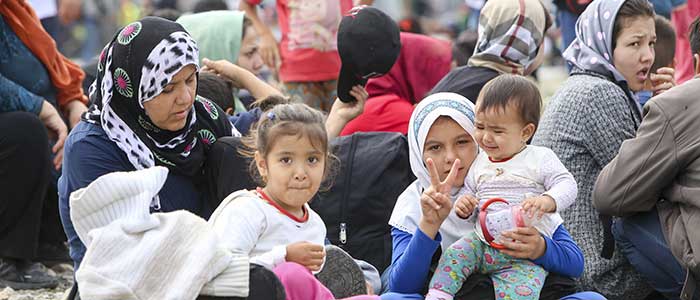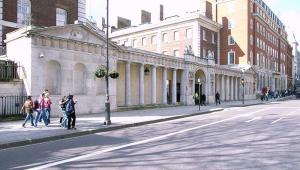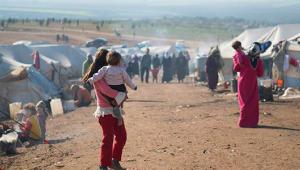Web_SyrianRefugee_shutterstock_320369474.jpg

Photo: Shutterstock
Giving evidence to the UK parliament’s international development committee, which is examining the ongoing crisis, Francois Reylet-Degat, deputy director of the United Nations High Commissioner for Refugees (UNHCR) regional bureau for the Middle East and North Africa, commended efforts so far but said they were still not enough.
“The global aid architecture is unfit for purpose for what we are witnessing. In a sense this is a subset of a global issue ‒ the modalities of structural, more long-term financial aid are no longer fit for purpose. The fact that Jordan and Lebanon are not receiving this type of support because they are middle-income countries is a major issue,” he said during yesterday's session.
He added that the UNHCR welcomes discussions occurring within international organisations such as the World Bank to confront such problems.
While $20bn of global wealth has been spent on the humanitarian response to Syria, the scale and scope of the “unbearable” situation that has displaced 19 million people in the region mean this is simply “not enough”, he said.
While commending countries such as the UK for stepping up to the plate and striving to give more, he said that the evolution of the situation and its needs are “outstripping generosity”.
Projects in the region are direly underfunded, Reylet-Degat warned. The UNHCR’s Regional Refugee Resilience Plan has only 45% of the $4.2bn it has asked for and within Syria funding needs are only 35% met.
The cash-strapped World Food Programme has also had to drastically reduce the value of its food vouchers and the number people it helps more than once over the course of the year, and has said it will need $236m to keep even this scaled-back version afloat through November.
Reylet-Degat cited this as a “key trigger” to the current flow of refugees to Europe through the Western Balkans, and said that greater assistance needs to be given to host countries in the region.
Sanjayan Srikanthan, director of policy and practice at International Rescue Committee UK, also gave evidence to the committee. He said the regional appeal’s funding has dropped from 74% funded in 2013 to 35% today.
“I agree that a lasting, peaceful political solution is what we all want but it seems to be as far away as ever. In the absence of this we need all countries to do more. The UK ‒ who has been leading in terms of contributions ‒ and other donors should give more to this appeal.”
An expanded donor base and measures to ensure funding is channelled into sustainable solutions are much needed, the committee was told.
Srikanthan added, however, that it was important to separate aid donations and the refugee resettlement crisis. For those fleeing the “primal terror and evil” within Syria “border fences, guards and more aid” is not going to stop them seeking refuge for their families, he said.
The MPs also was told about the reluctance to provide aid funding to developed countries in the Western Balkans and the UK’s decision to take only refugees that been registered by UNHCR from camps bordering Syria when unregistered refugees were often more vulnerable.
Representatives from NGOs Save the Children, Handicap International, Human Rights Watch and Open Doors UK said that some of the most vulnerable refugees ‒ children, elderly and disabled people, and the Christian and LGBT communities ‒ most in need of resettlement are often unregistered.
As winter approaches and scores more continue to make the increasingly perilous journey to Europe through the Western Balkans, the most vulnerable become more at risk here too, the committee heard.
Did you enjoy this article?
to receive daily news from Public Finance International to your inbox













